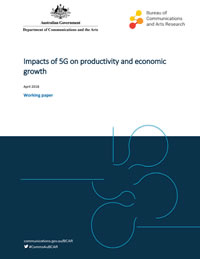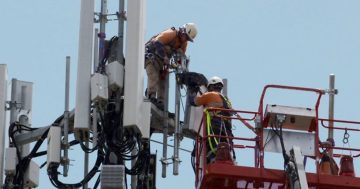 The Bureau of Communications and Arts Research (BCAR) has developed and released an assessment of the potential impact the mobile 5G technology will have on Australia’s productivity and growth.
The Bureau of Communications and Arts Research (BCAR) has developed and released an assessment of the potential impact the mobile 5G technology will have on Australia’s productivity and growth.
The Bureau’s report, Impacts of 5G on Productivity and Economic Growth, also covers the consideration of possible changes to regulatory settings that may be needed to support the rollout and adoption of 5G services.
It provides estimates of the costs and benefits that may stem from 5G and the impacts on businesses and consumers.
According to the Bureau 5G was likely to have a positive effect on productivity growth across the Australian economy.
“Early estimates suggest that 5G could add up to $2,000 in gross domestic product per capita at the end of the first decade after the rollout,” BCAR said.
“The industries where Australia is already telecommunications-intensive, including the information, media and telecommunications, arts and entertainment, education and wholesale and retail sectors, are well placed to take advantage of 5G services.”
It said however that not all the benefits from 5G would be captured in dollar values as the additional choice and reduction in costs driven by 5G-enabled technology was likely to improve the wellbeing of consumers and households through better enabling a range of applications such as robotics and the Internet of Things.
“The economic impact of 5G will be determined by the extent to which it is an improvement on previous mobile technology, or if it is a general purpose technology — one typically associated with industrial revolutions,” the statement said.
“Australia is well-positioned to make the most of 5G technology. Australia’s use of telecommunications-enabled goods and services ranks well in comparison with the United States, Canada, Germany and South Korea.”
The statement said 5G was expected to begin its rollout from 2019.
BCAR’s 47-page working paper can be accessed at this PS News link.











